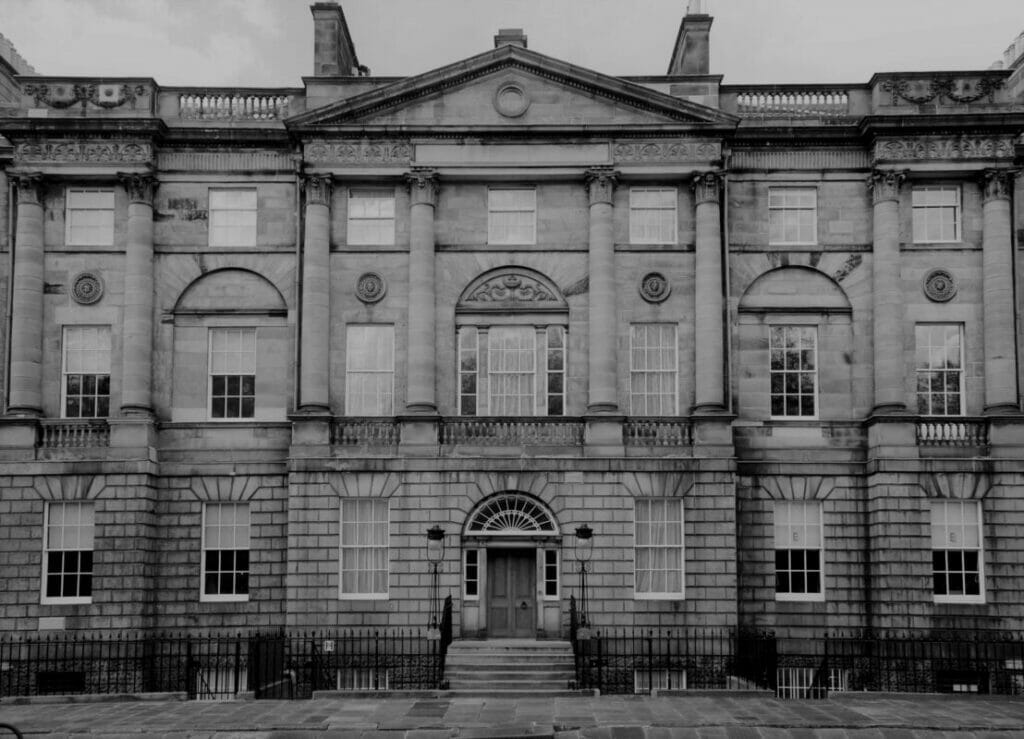When the SNP formed a minority government after the Scottish Parliament elections in May 2021, the party quickly sought to enter into a cooperation agreement with the Scottish Greens. Following a period of negotiations, the SNP and Scottish Greens reached what is known as The Bute House Agreement in August 2021. This set out how the two parties intended to work together over a period of five years, with the Scottish Greens supporting the SNP-led government on the majority of its policies. The agreement focused on a number of shared priorities, including a second referendum on Scottish independence within the current session, reforming the process of gender recognition, enhancing tenants’ rights and increasing investment in public transport. The deal also saw Patrick Harvie and Lorna Slater become junior ministers, marking the first time politicians from the Greens have been appointed to government in the UK. In this blog, Eloise Richmond reflects on the progress of the Bute House Agreement and considers the stability of its future.
Key Policy Changes
The Bute House Agreement has led to a number of significant policy changes such as the doubling of the Scottish Child Payment, free bus travel for under-22s and the passing of the Gender Recognition Reform (Scotland) Bill. The Deposit Return Scheme and the potential introduction of Highly Protected Marine Areas are also policies being endorsed as part of the agreement. Following the sudden resignation of Nicola Sturgeon in February, the then First Minister and Lorna Slater paid tribute to the partnership and what had been achieved thus far. However, Nicola Sturgeon’s departure had potentially unexpected implications for the Bute House Agreement.
Leadership Uncertainty
During the SNP leadership election, Patrick Harvie warned the coalition between the SNP and the Scottish Greens would come to an end if the new leader failed to honour any part of the deal. The campaign certainly raised questions around the sustainability of the Bute House Agreement, with Humza Yousaf the only candidate to vow to challenge the UK Government over its decision to use a section 35 order to block gender recognition reforms in Scotland, while Kate Forbes committed to having a “grown-up conversation” with the UK Government and Ash Regan pledged to scrap the reforms altogether. The Deposit Return Scheme also looked vulnerable during the contest, with all three candidates vowing to change or pause the policy. Throughout the campaign, Humza Yousaf was the only candidate who appeared fazed by the prospect of being in a minority government.
A Return to Business as Usual?
Humza Yousaf was elected as the leader of the SNP on Monday 27 March, to the relief of the Scottish Greens and those within the SNP who saw him as the continuity candidate. Following his election, the government published a document titled New Leadership, A Fresh Start for Scotland, which set out the key aims it intended to achieve within each cabinet secretary’s portfolio. Humza Yousaf said the government would realise this vision by “working constructively with Green party colleagues”. For both the SNP and Scottish Greens, the election of Humza Yousaf was almost seen as a return to business as usual. It soon became apparent, however, not all MSPs within the SNP were as enthusiastic about the election of Humza Yousaf and the continuation of agreement.
Emerging Issues
In April the Herald reported a group of 15 SNP MSPs were prepared to challenge the government, with plans to release their own set of policy documents on jobs and the economy. It is understood the group is comprised mostly of MSPs who backed Kate Forbes in the leadership campaign, opposed the government’s Gender Recognition Reform (Scotland) Bill and have voiced concerns around the introduction of the Deposit Return Scheme. These reports emerged following a call from Fergus Ewing, who served as rural affairs secretary under Nicola Sturgeon, for an end to the Bute House Agreement. He suggested the agreement with the Scottish Greens had seen the SNP become “allied to a small group of fringe extremists who want to dismantle the economy, put hundreds of thousands on the dole and basically close down rural Scotland”. He also claimed the government’s support for gender recognition reform and the Deposit Return Scheme, both key policies within the Bute House Agreement, had led to a drop in SNP members and electoral support. According to a new poll carried out for The Times, over a third of SNP voters (35%) want to see the party end the Bute House Agreement with the Scottish Greens.
What’s Next for the Agreement?
Responding to reports of internal rebellion, Humza Yousaf suggested he was not concerned about dissent within the SNP and stressed he was open to work constructively with colleagues. With the Scottish Government challenging the UK Government’s use of a section 35 order to block gender recognition reforms and re-examining how the Deposit Return Scheme could be implemented under UK Government conditions, it seemed Humza Yousaf might have stifled some of the key concerns around the Bute House Agreement. However, there now appears to be mounting opposition to proposals for Highly Protected Marine Areas. At the beginning of May, Fergus Ewing ripped up a copy of the government’s Highly Protected Marine Areas consultation during a members debate in parliament, warning he had not seen such backlash to a policy in 50 years. This is coupled with suggestions from Kate Forbes that the government’s commitment to Highly Protected Marine Areas is a “product of political expediency rather than what the public need”. Moreover, the Scottish Government has since announced the Deposit Return Scheme would be delayed until at least October 2025, citing the UK Government’s refusal to agree a full exclusion from the Internal Market Act, and is facing backlash from businesses with an estimated £300m having been invested in preparations for the new scheme. The Bute House Agreement remains in place for now but there is no doubt a number of its key policies will continue to face both internal and external pressures following Humza Yousaf’s election.
Eloise is Newsdirect’s Westminster Reporter.



